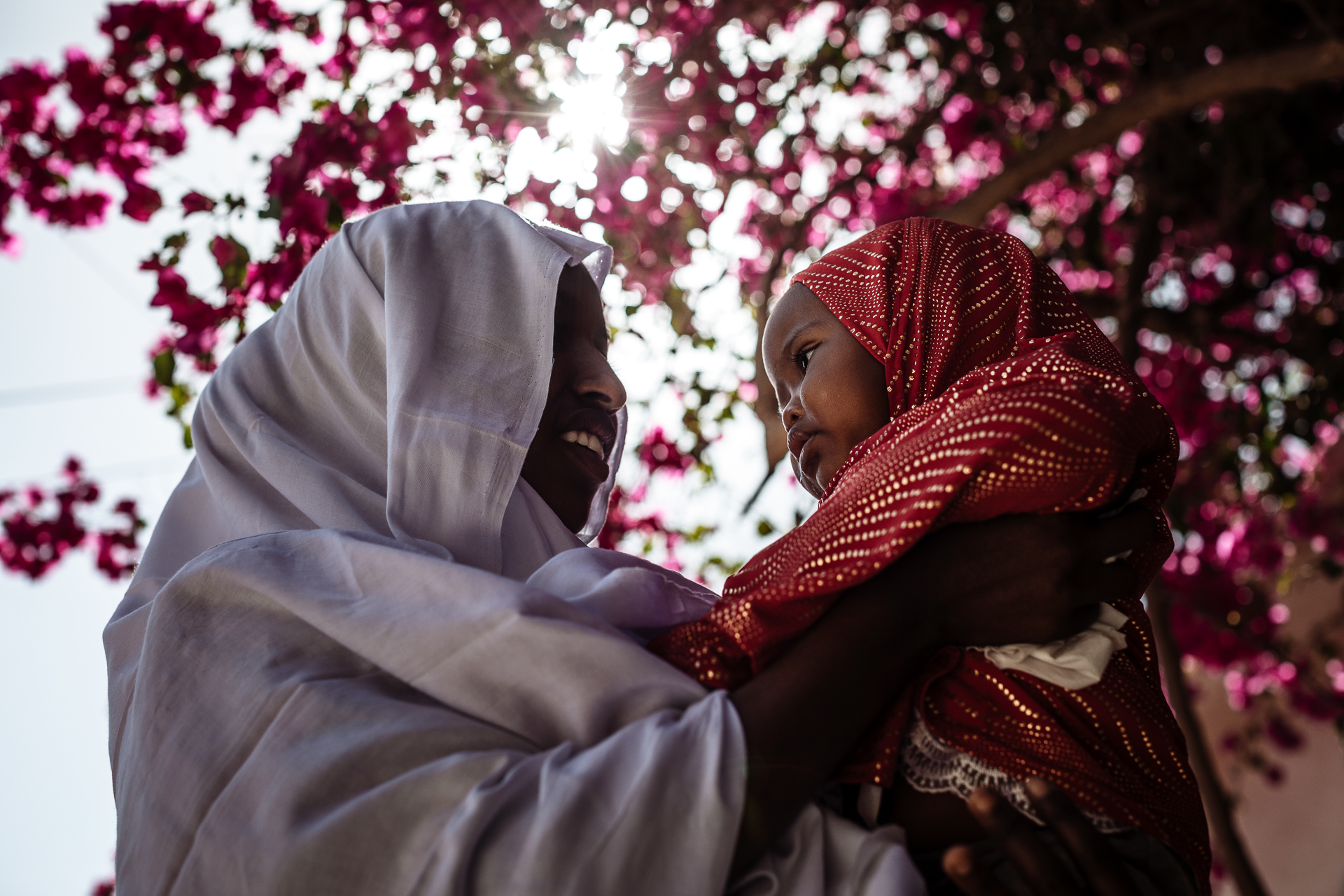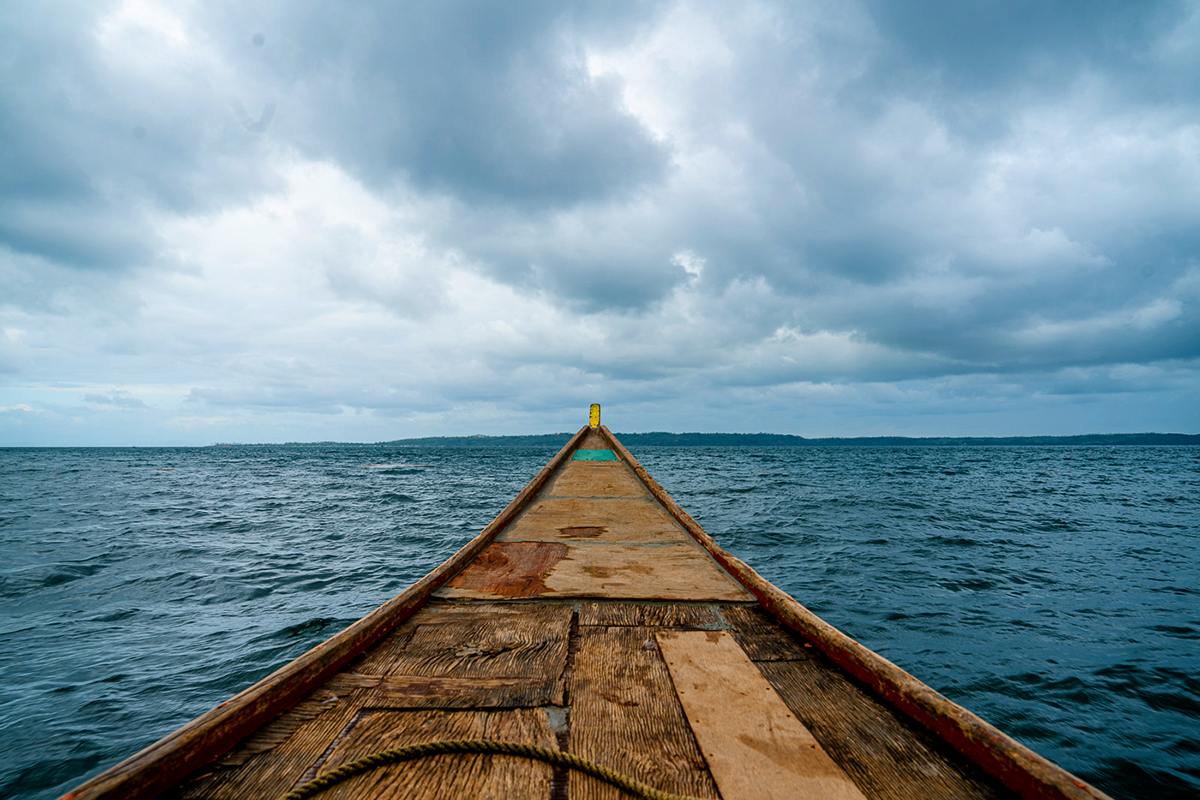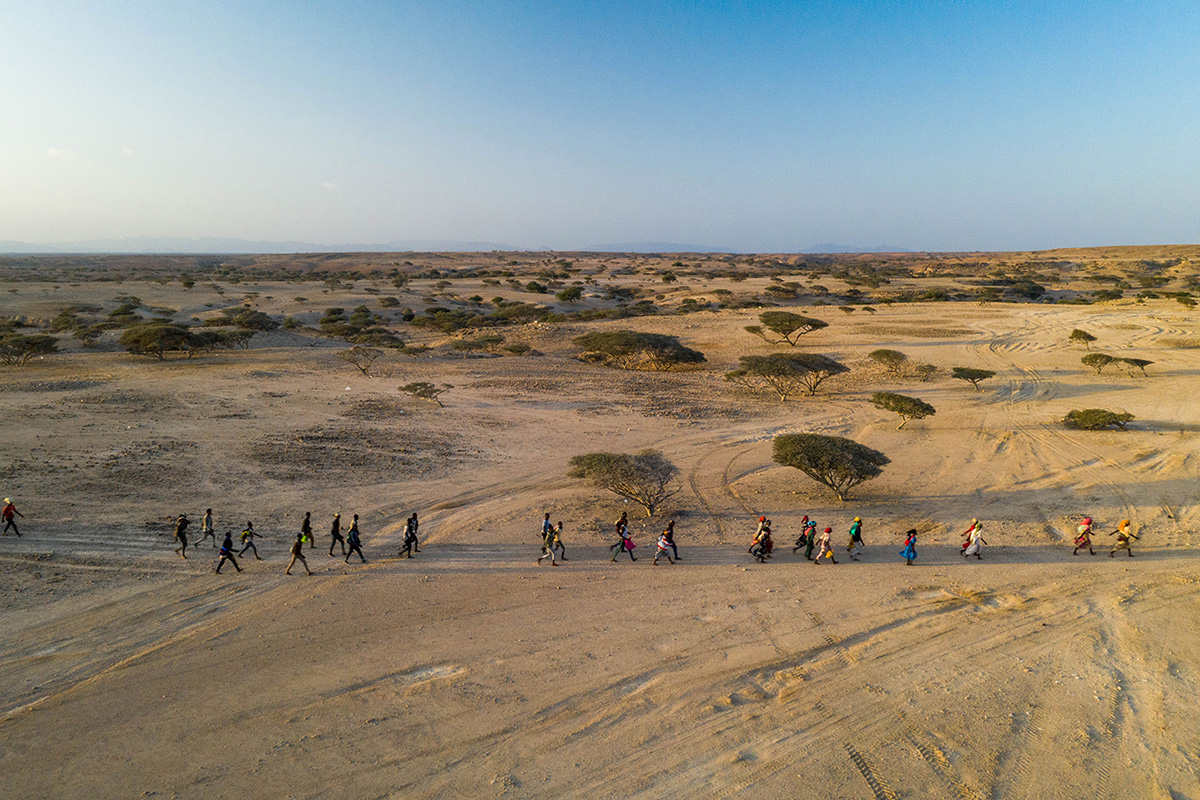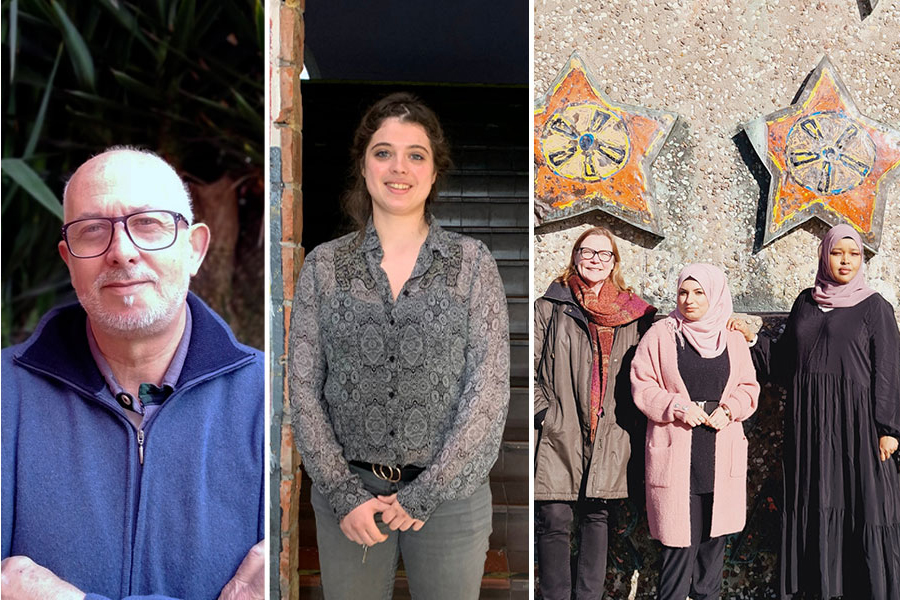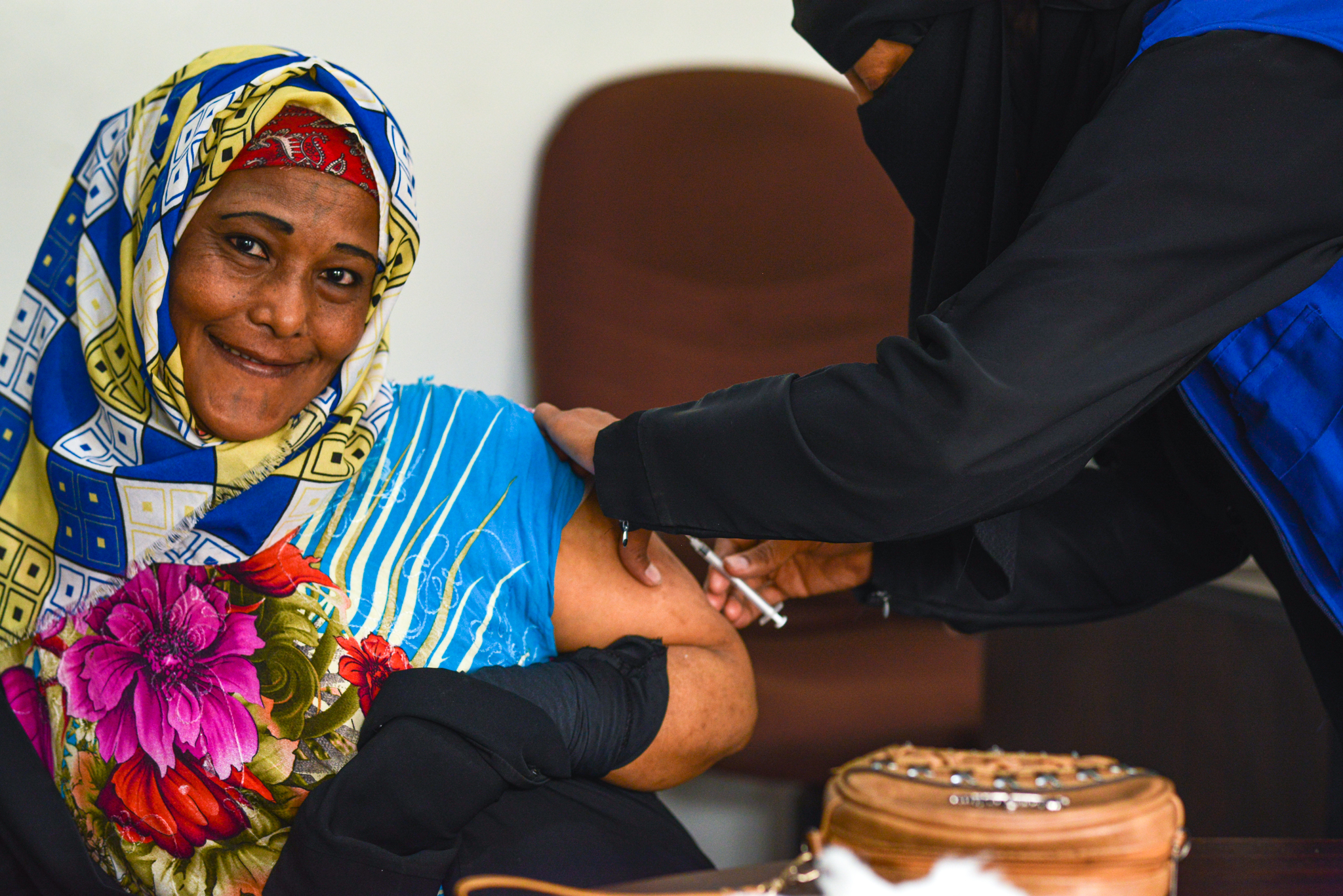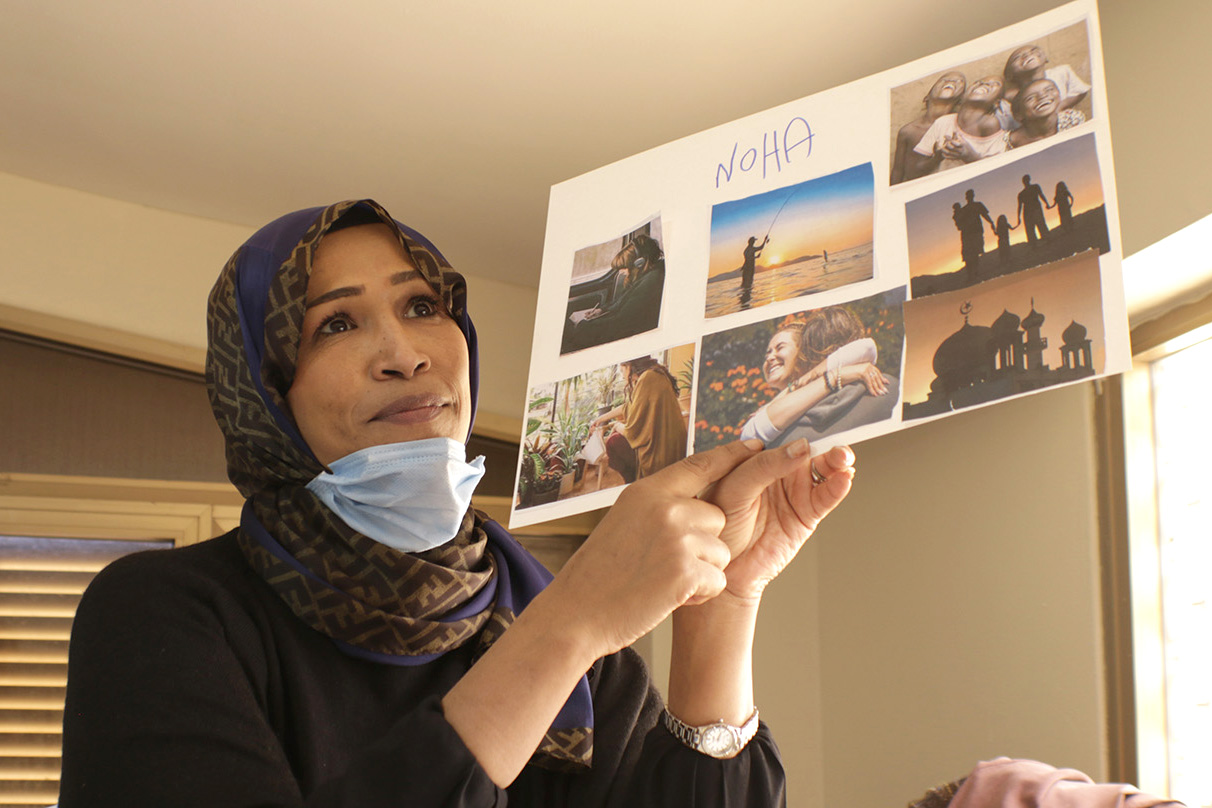Hundreds of lives are believed to have been lost along the route and particularly at sea in the Gulf of Aden.
IOM
At the end of 2020, around 7 million people in 104 countries and territories were living in displacement as a result of disasters that happened not only in 2020, but also in previous years.
Pictured are Fadmou and her child. She and family planned to travel from Somaliland to Yemen in hopes of reaching the Kingdom of Saudi Arabia. Fadmou is one of many migrants who were unaware that she was about to cross into a war zone until she was informed by IOM staff while staying at an IOM migrant response centre in Hargesia, Somaliland. “The COVID-19 pandemic has worsened existing crises around the world,” says the International Organization for Migration's (IOM) Director of Operations and Emergencies, Jeffrey Labovitz. In 2020, IOM reached over 37 million people in need worldwide, providing much-needed aid to migrants, internally displaced persons (IDPs), refugees, and the local communities who support them.
A recent IOM report calls to urgently improve support for tens of thousands of missing migrant families who are often forced to rely on smugglers and informal networks in tracing loved ones.
When people go missing on migration journeys, their disappearance has reverberating effects on their families and communities left behind. IOM aims to learn how people with missing migrant relatives cope with the absence of their loved ones while actively seeking answers, and how they could be better supported in their efforts by governments and other actors.
Ethiopian men make up 72 per cent of movements of migrants heading to Djibouti, but IOM is observing a higher number of unaccompanied migrant children taking this dangerous journey.
Every day, in cities across Europe, frontline workers provide essential services to migrant communities in a challenging context. They play a vital role in the daily lives of many individuals and families by serving as a link between these communities and the host country. Who are these frontline workers? What do they do, what barriers do they face in their daily work, and how do they build trust and engage with the people they serve? How does their work impact their own lives? The UN Organization for Migration (IOM) got to know nine frontline workers from across Europe who shared their experiences.
For many lesbian, gay, bi, trans, intersex and queer (LGBTIQ+) people, leaving their communities in search of a safer and more welcoming place to call home is the only way to find a job, get access to healthcare or find safety from poverty, family rejection, criminalization, threats and violence. Every human being deserves the freedom to simply be themselves, without facing violence and discrimination. Together we can create a future free from prejudice, where everyone truly belongs. Help us spread these stories of determination and resilience . Learn more >>
Six years after the conflict broke out, deadly fighting, economic collapse, disease outbreaks and extremely limited public services remain a constant of daily life in Yemen. Aisha and Tawfiq were lucky for a while before they became two of the 4 million displaced people in Yemen, but then about four years into the conflict, their home became unsafe. They left their home by car and eventually made it to Heartha district, where they now live with their children in an emergency shelter, built with support from IOM.
Every human being deserves the freedom to simply be themselves, without facing violence and discrimination. Join IOM and OHCHR to create a future free from prejudice for migrants with Free and Equal.

From teenage widow to confident working mother
In a society like Afghanistan, traditional norms often make it difficult for women to access employment, get a loan or start a business. Yet, when women are given an opportunity, they make significant contributions to the growth and development of their families and their communities at large. This is the story of Sakina, who overcame the odds with the help of the International Organization for Migration (IOM).
The success of national vaccination campaigns depends on how inclusive and equitable they are, but there are serious concerns that some members of vulnerable communities may be excluded even if they are mentioned on paper.
PLURAL+ is a youth video festival that encourages and empowers global youth to explore the issues of migration, diversity, social inclusion, and xenophobia through the production of short films. Meet some of the young filmmakers who have won awards for their outstanding videos calling for social change.


